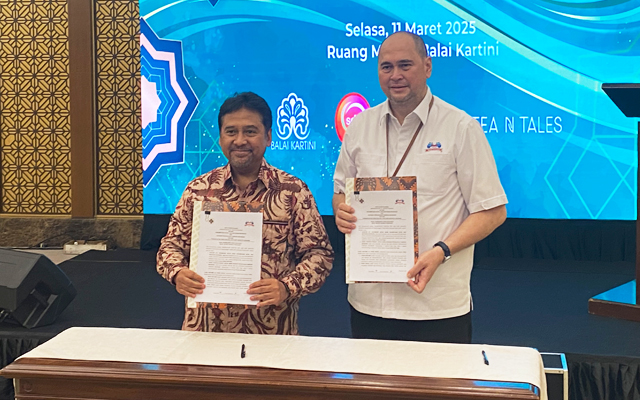The Indonesian Exhibition Companies Association (IECA) and the Indonesian Hotel and Restaurant Association (IHRA) have signed a memorandum of understanding (MoU) to strengthen industry collaboration and shift from government-events focus to private sector-driven events.
Under the agreement, hotels will offer competitive rates to IECA members, ensuring continued use of venues while allowing exhibition organisers to secure cost-effective spaces. The partnership aims to bridge the gap left by declining government-backed gatherings, which once formed a significant portion of large-scale events.

The MoU was recently signed during the IECA Afternoon Tea event in Jakarta.
Haryadi Sukamdani, IHRA Chairman said: “This is a necessary shift. Hotels have long depended on government events to fill ballrooms, but we need to be more adaptable. By working with IECA, we’re opening doors for more private sector collaborations.”
The partnership is particularly aimed at IECA members in regional areas, especially those outside Jakarta, where event infrastructure is less developed, and many organisers struggle to find venues that are both accessible and budget-friendly.
“By securing preferential rates, our members in these areas gain viable alternatives that enable them to continue hosting events,” said Hosea Andreas Runkat, IECA Chairman.
For IECA, the agreement is part of a broader effort to ensure its members to continue holding events despite financial constraints. “Our industry depends on consistency. Reliable access to venues gives organisers confidence to plan, keeping the sector active,” he pointed out.
While exhibition organisers face fewer direct consequences from government budget cuts, Hosea highlighted that the sustained activity of venues is crucial for the well-being of the entire event ecosystem – from hotels and suppliers to contractors, and other reliant stakeholders.
“Keeping event spaces in use helps sustain the entire ecosystem. This is not just about exhibitions, it’s about ensuring the entire value chain, from logistics to production, remains strong,” he elaborated.





















